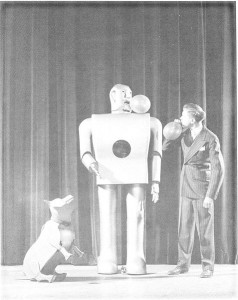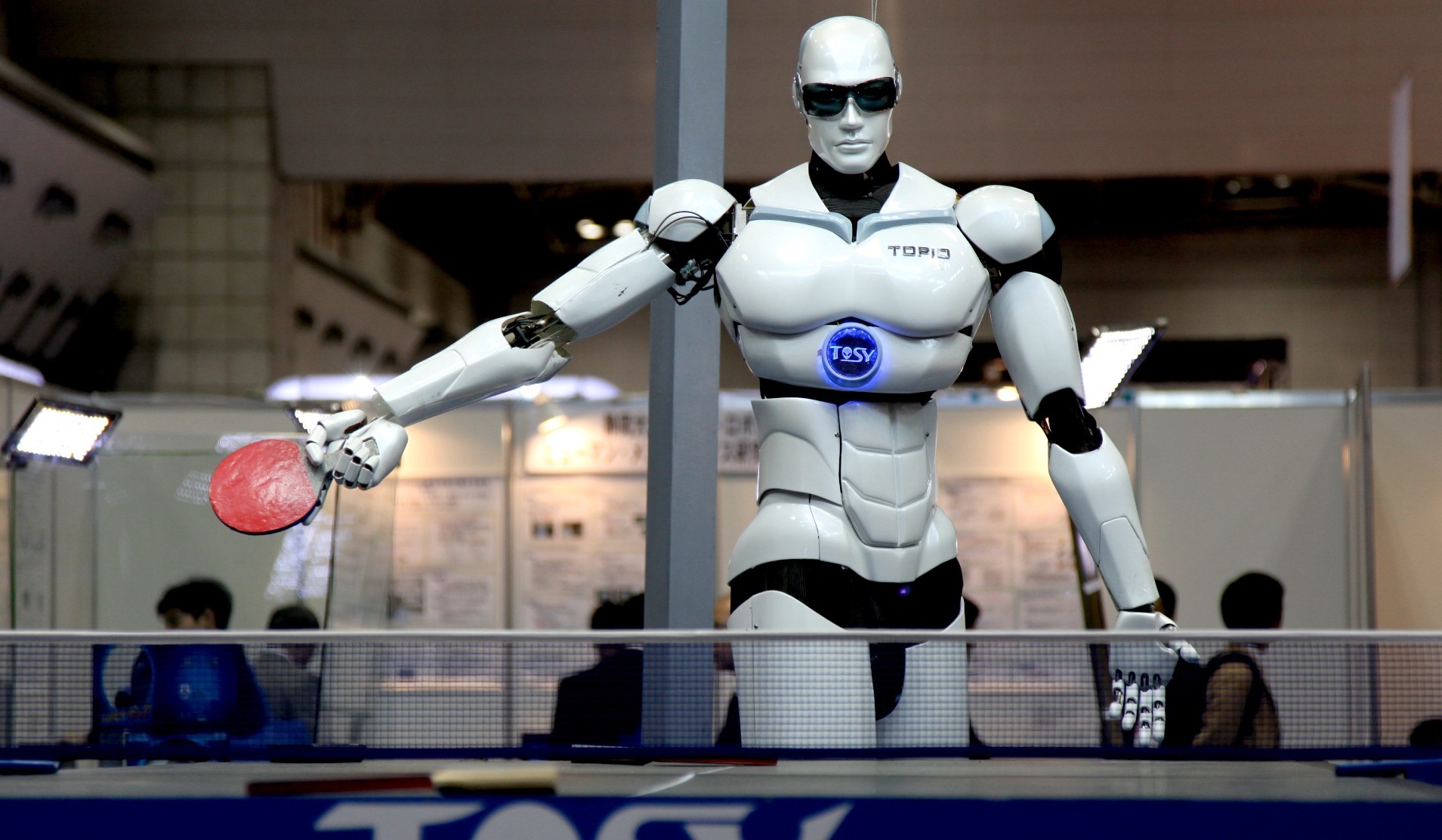In 100 years, will Americans’ lives be job-centric? Will workweek hours be the same? Will we even have a “workweek”?
Robots, things once relegated to science fiction, are now, right now, helping us answer these questions. They efficiently work in our factories, carefully help us perform complicated surgeries, obediently answer out questions (think Siri), and are most definitely here to stay. What does this mean for America? No one knows for sure, but the two main camps on the matter, the “robots are job-takers” and the “robots are job-makers” camps, both agree that a world with robots is better than a world without.

Andrew McAfee, researcher at MIT’s Sloan School of Management, argues the opposite in his new book with Erik Brynjolfsson, Race Against the Machines. McAfee and Brynjolfsson were featured on CBS’s 60 Minutes in a story about the inevitable job loss Americans can expect to see from the introduction of robots into factories. What the 60 Minutes bit, which has been criticized as being short sighted for its overly pessimistic tone, didn’t go into what McAfee independently articulates elsewhere: the introduction of robots into the economy has the potential to be as significant as the introduction of the steam engine. The steam engine, McAfee argues, led to a revolution of the way that we organized our time and experienced our world; robots would have nothing less than that effect.
Of course, not all evidence on the subject supports the “job-takers” camp, however. In late February, the International Federation of Robotics (IFR) released a research study called “Positive Impact of Industrial Robots on Employment.” The study found that direct and indirect employment increased dramatically as a result of robots’ usage in factories, 3-5 jobs per robot. 1.9 to 3.5 million jobs would be created by robot related work in the next 10 years, the IFR predicted.
One of the companies working on establishing a public connection between industrial robotics and job creation is Rethink Robotics, led by MIT professor emeritus Rodney Brooks. Last September, Brooks and his team introduced Baxter, a low cost robot designed to work easily alongside of humans. Baxter, which has been praised by the likes of Wired, is an ideal contribution for the American industrial workforce: you can tell where it is looking because of screen on its head that displays cartoon eyes, you can train it even if you haven’t had an education in programming, and it costs $22,000 while only needing to be replaced every 3 years. Essentially, Baxter is the equivalent of a worker who gets $3.5 an hour and doesn’t need to take breaks. With workers in China even rejecting low pay factory jobs available (coupled with a dramatic reduction of shipping costs for companies currently outsourcing), introducing Baxter into American factories is a practically impossible prospect to beat.
But what if future generations of Baxter cease to need human training? Rethink Robotics asserts that there will always be a need for human involvement in manufacturing, which may be true, but Wired magazine takes a more pragmatic stance, ending up in the “job-takers” camp. “We need to let robots take over,” writer Kevin Kelly argues. “They will do jobs we have been doing, and do them much better than we can. They will do jobs we can’t do at all. They will do jobs we never imagined even needed to be done. And they will help us discover new jobs for ourselves, new tasks that expand who we are. They will let us focus on becoming more human than we were.”
Ultimately, most people in this discussion appreciate that robotics in our industries is the future. Most in the “job-makers” camp are imagining a world more similar to ours that helps us in the short run, which is important step if robotics will ever gain wide acceptance in our society. The “job-takers” camp, on the other hand, looks way longer down the line, at the age of robotics that is inevitably coming. Indeed, McAfee emphasizes that we should, if we are interested in technology taking us to a better society, understand the long-term repercussions of introducing robots into our lives.
It appears that robots will be neither the cause of nor the panacea for the issues we will face in an increasingly globalized world. The ideologies behind competing uses of technology are what will be guiding this debate—the robots themselves—can be used in any capacity.
